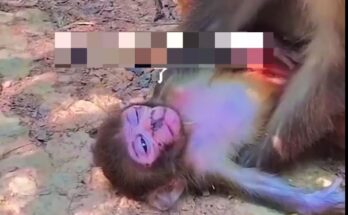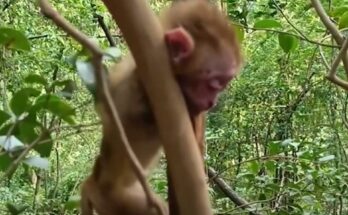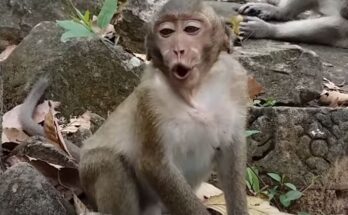Motherhood in the animal kingdom comes with significant physical and emotional challenges, and mother monkeys are no exception. After giving birth, female monkeys experience extreme exhaustion and weakness due to the immense physical demands of pregnancy and labor. The postpartum period is a crucial time for both the mother and her infant, as the mother must recover while also ensuring her newborn’s survival.
One of the primary causes of exhaustion in mother monkeys is the energy-intensive process of childbirth. Labor can be prolonged and physically draining, leaving the mother weak and vulnerable. Unlike some mammals that receive extended care from their social group, many primate mothers must resume their responsibilities almost immediately after birth. This includes nursing, carrying, and protecting their infants, all of which require significant energy.
Nutritional depletion is another major challenge. During pregnancy, the mother’s body diverts resources to fetal development, often leading to deficiencies in essential nutrients. After birth, lactation demands further drain her body’s energy reserves. If food sources are scarce, the mother may struggle to regain her strength, leading to prolonged weakness and a slower recovery.
Additionally, the social dynamics within a monkey troop can impact a mother’s recovery. In some species, higher-ranking females receive better access to food and support, while lower-ranking mothers may face competition and stress. In extreme cases, exhaustion and weakness can make a mother more susceptible to threats from predators or even aggression from other monkeys.
Despite these hardships, mother monkeys display remarkable resilience. Their survival instincts drive them to care for their offspring, often at great personal cost. Understanding the challenges of post-birth recovery in primates can offer valuable insights into maternal health, both in wildlife conservation efforts and in drawing parallels to human postpartum care.


